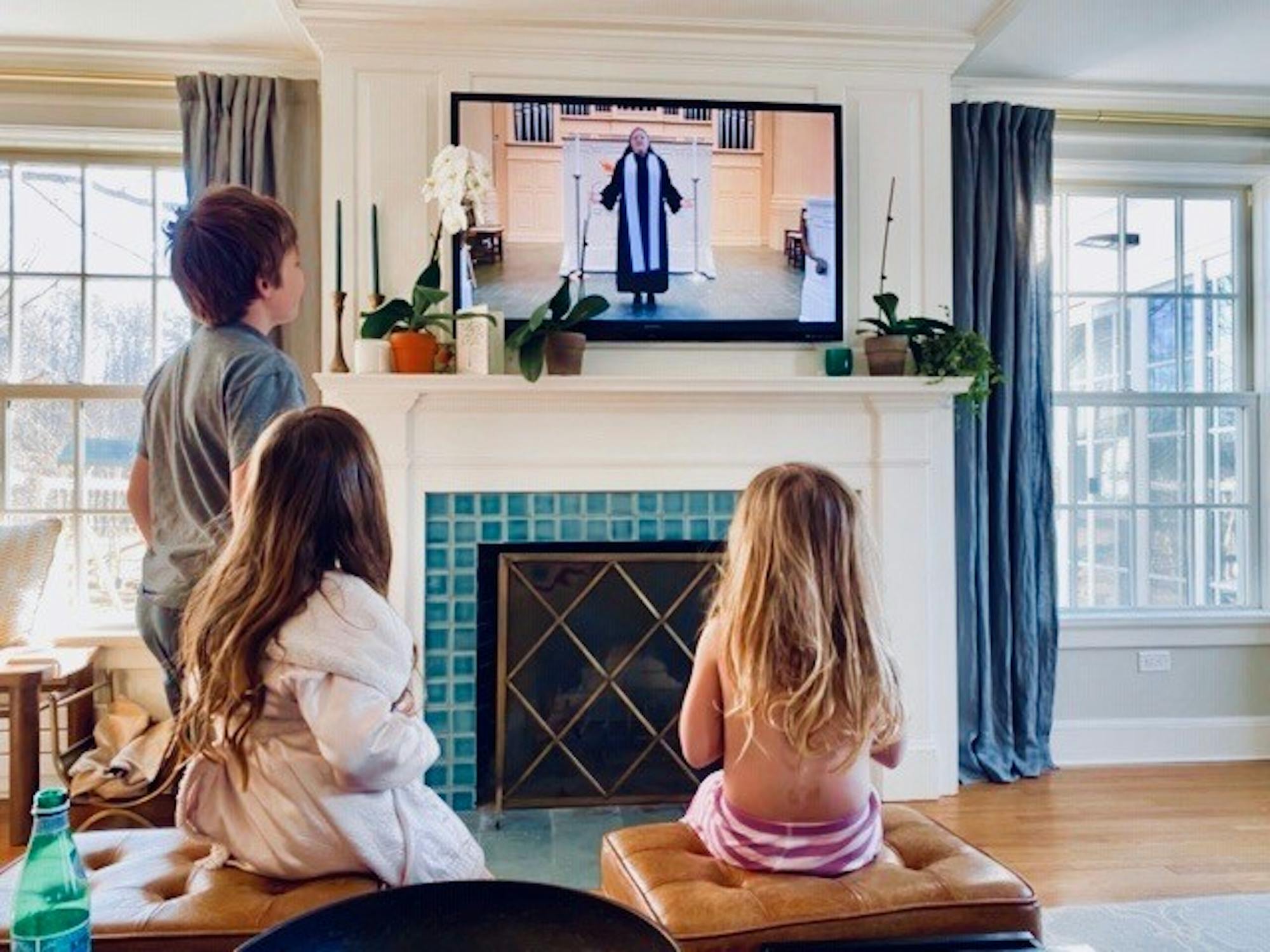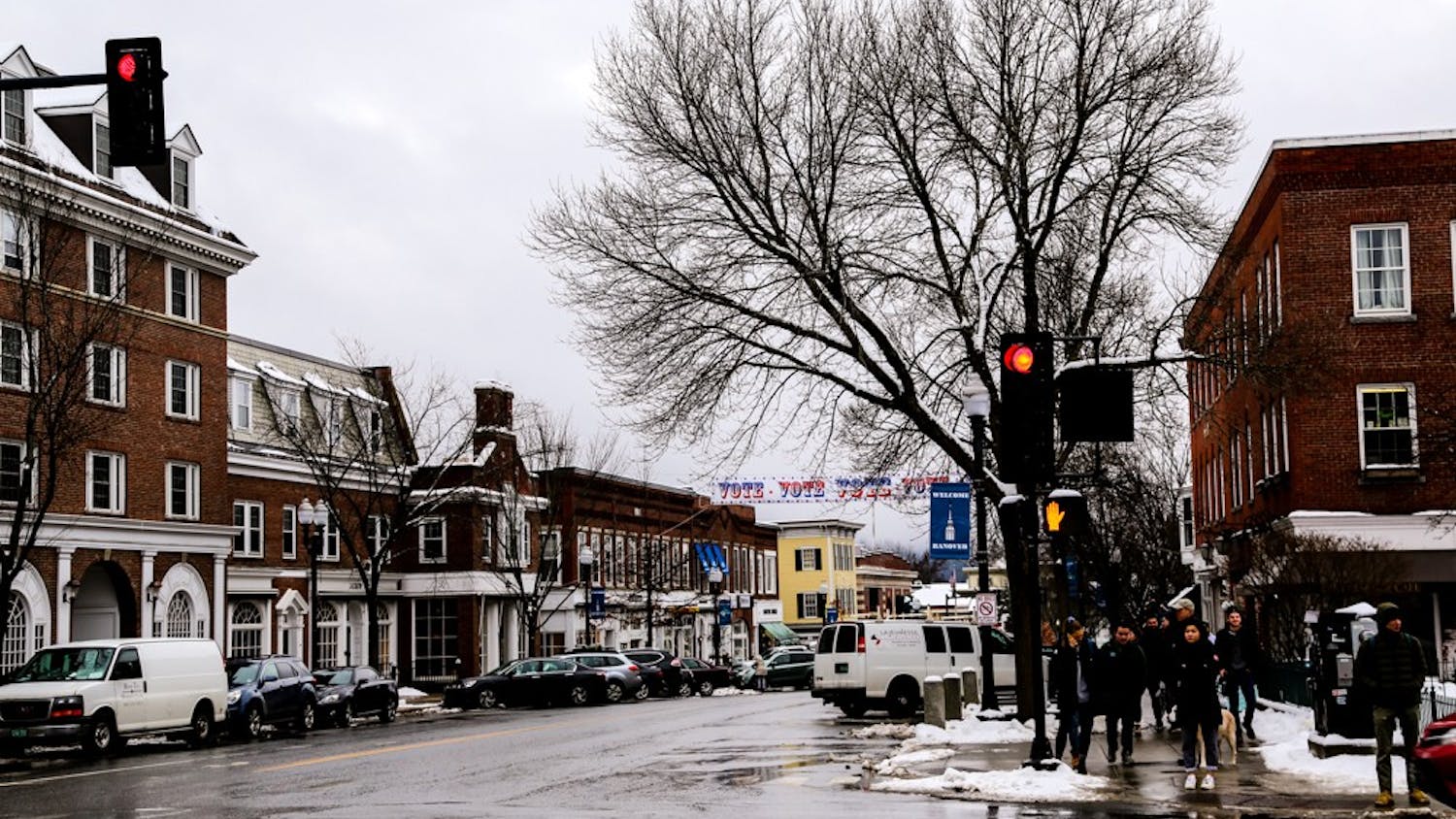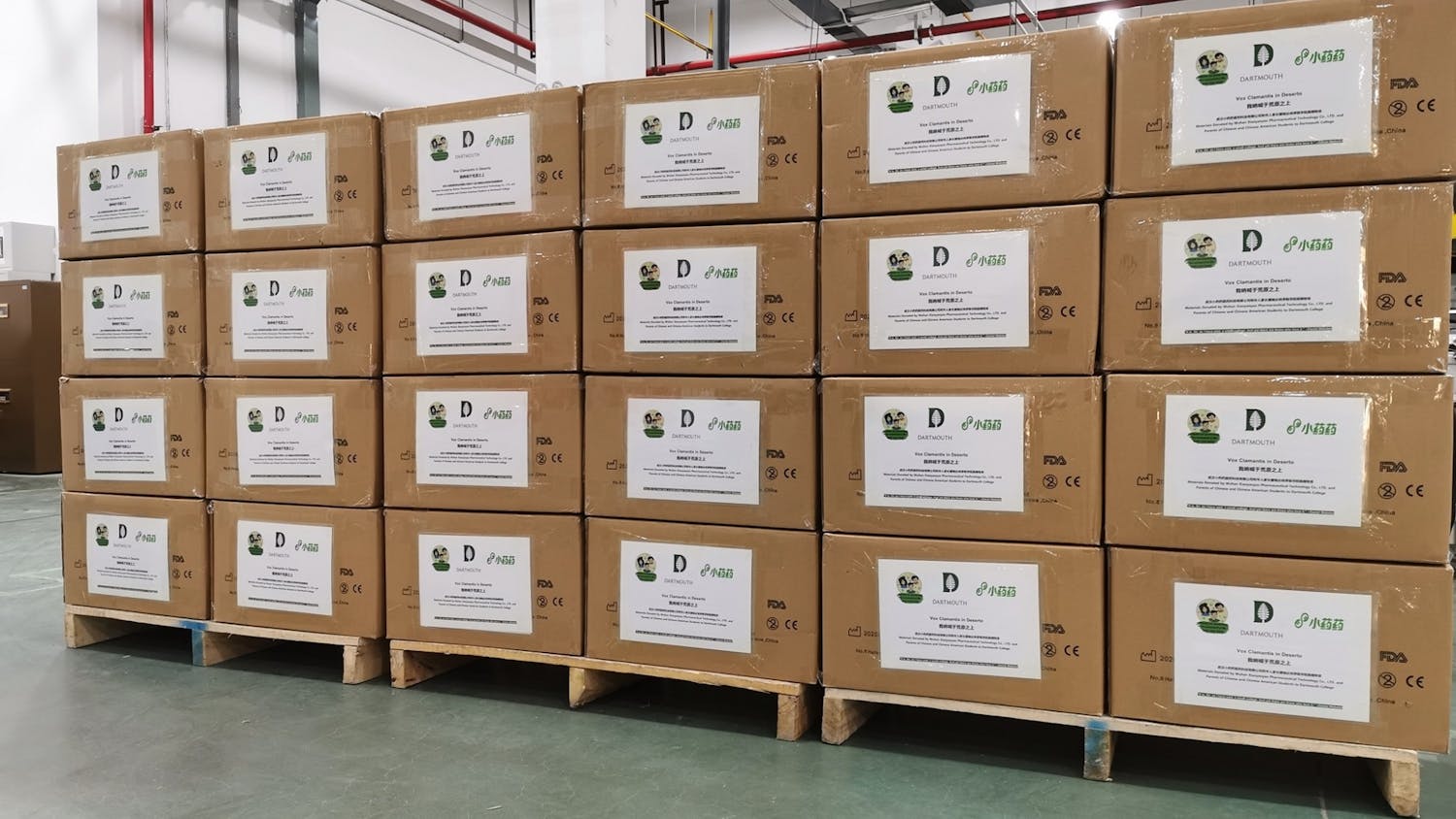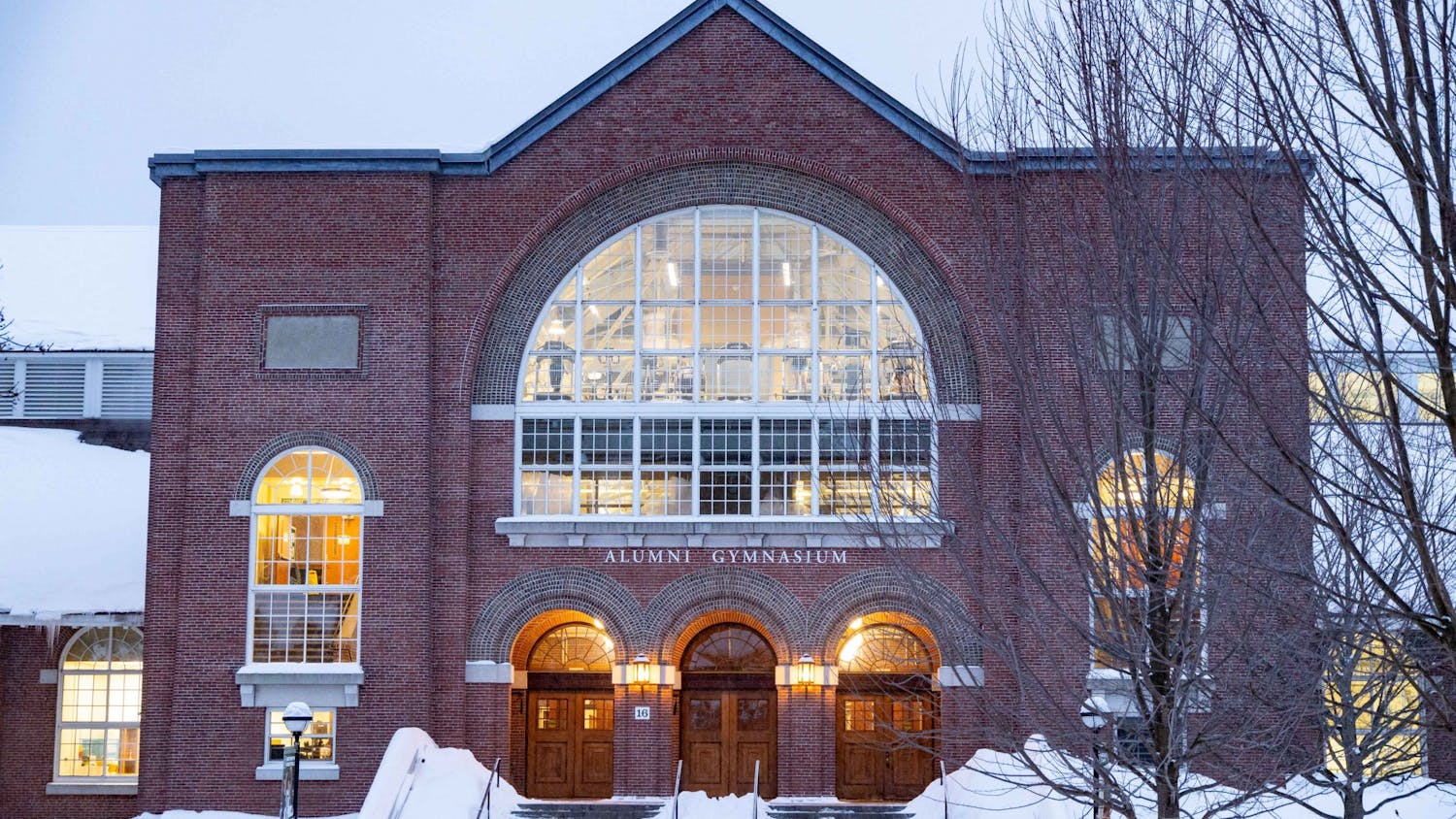Updated April 2, 2020 at 11:48 p.m.
In the town of Hanover and the greater Upper Valley, the closing of Dartmouth’s campus is only one piece of a larger halt to normal activity. The threat of COVID-19 transmission has shuttered businesses, strained local medical resources and put local officials and community leaders on edge.
Speaking from her town hall office, which is now closed to the public except by appointment, Hanover town manager Julia Griffin said that the streets were unusually quiet. The closure of campus and local retail businesses sent car traffic to unprecedented lows. Residents enjoyed walking in the street as they maintained social distance, according to Griffin.
“People are using the relative quiet of the empty streets and campus to get walking exercise to maintain their physical and mental health,” she said.
In line with state and national directives, the majority of retail businesses in Hanover are closed. Many restaurants are still open for takeout or delivery business, including Base Camp, Boloco, Han Fusion, Lou’s Restaurant and Bakery, Market Table, Molly’s Restaurant and Bar, Sushiya, Tuk Tuk Thai Cuisine and Umpleby's Bakery Cafe. Pine will remain open for takeout and delivery until Thursday evening, after which it will close. Murphy's on the Green is closed, as is the Starbucks on Main Street.
Sonya Campbell, co-owner of Hanover True Value — one of the few retail stores deemed essential and therefore allowed to stay open — said that she was seeing steady business from people buying cleaning and home repair supplies. She added that her staff members were working normal hours and operating an informal curbside pick-up system for those who request it.
“People are using that time at home to catch up on cleaning and little, long-postponed household projects,” she said.
Over the course of the last few weeks, the Hanover Co-op has implemented measures to keep employees and customers safe, according to Hanover Co-op director of public and government affairs Allan Reetz. These include restricting shopping to at-risk shoppers between 7:00 a.m. and 8:00 a.m. each day. All Upper Valley Co-ops — four stores and two service centers — have instituted similar policies.
The Co-ops have also introduced plexiglass partitions at checkout counters to protect store employees and floor markings to keep patrons six feet apart. The chain has implemented new cleaning procedures and has discontinued the bulk food section, Reetz said. He added that the Co-op plans to roll out a curbside pickup system over the next few weeks and said the stores also paid all employees a $300 bonus.
Reetz said the stores have not seen any major shortages of items like cleaning supplies or staple foods.
“Certainly, we saw a lot of shopping in those first few days, but we were able to be nimble and find alternative distributors,” he said.
Non-business-oriented aspects of life in the Upper Valley are facing disruptions, too. School-aged children in Grafton County started classes online last week. According to Griffin, area schools have opted to teach a full curriculum online by streaming classes taught by teachers in their classrooms. Periodic state testing has been canceled.
“I’m hearing that things are going pretty well,” Griffin said. “Teachers have become really creative and thoughtful about the programs they’ve set in place.”
The Kendal retirement community north of campus and the local Hanover Terrace and Wheelock Terrace nursing homes are all closed to visitors. Past public health concerns like a norovirus outbreak have caused the retirement community to close down before, so residents and the on-site medical team are well-prepared for a long period of no contact, she said.
Non-essential Hanover city government functions have been curtailed, Griffin said. The Hanover library, community center and senior center have all been closed to the public. Several employees at the public works department have been furloughed, but the department remains on call in case of inclement weather.
The first online Hanover city meeting happened on March 31, according to Griffin. The state of New Hampshire normally requires that all public meetings be held in person with adequate access for the public to attend, but an emergency memo from Gov. Chris Sununu has waived that restriction.
Despite the directive to stay home, people in Hanover and the Upper Valley are still finding ways to engage with the community through faith and volunteering. Most weekly religious services have moved to live-streams or pre-recordings. Associate pastor Rob Grabill of the United Church of Christ at Dartmouth College, which has started recording sermons, posting to YouTube and broadcasting on public access TV, said the challenges of the novel coronavirus outbreak were bringing parishioners together.
The UCC, like many faith-based organizations in the area, is also a clearinghouse for informal volunteering opportunities. Grabill said the parish nurse organizes grocery deliveries, while other volunteers send flowers and cards to elderly members.
Charities in the Upper Valley, in the meantime, are preparing to assist at-risk residents. The Upper Valley Haven, a White River Junction-based nonprofit that provides temporary shelter, food and clothing to the homeless and in-need, has had to adapt quickly to health demands according to executive director Michael Redmond.
The organization’s most drastic step has been to close its seasonal shelter, which usually has 15 beds open to house people during the winter, Redmond said, adding that the state of Vermont has given vouchers to displaced residents to stay in local hotels.
Redmond said that since older volunteers have been asked to stay at home, younger people with cleared schedules have taken over much of the work of distributing food and supplies. People have also stepped up monetary donations.
Looking to the next few weeks and months, many in Hanover and the Upper Valley are uncertain about how severe the outbreak might become and what the effects of prolonged social distancing might be.
Campbell, a long-time resident of Hanover, said she was worried about her elderly mother.
“We haven’t been able to really see her for a couple of weeks now, and we don’t know how long that’s going to last,” she said.
Pastor Grabill said he heard from his parishioners that there was “a lot of anxiety” about the course of the outbreak and that children attending religious programs were missing school and friends.
Griffin expressed concern about the town's ability to handle a potential surge of COVID-19 cases. She said that Dartmouth-Hitchcock Medical Center and the town of Hanover could see shortages of personal protective gear in the coming weeks. She stressed that while the supply was not ideal, Hanover was in a relatively good situation considering the national average and the shortages in certain hotspots.
“We have a fair amount of personal protective equipment, but not nearly enough if this really becomes the kind of problem it could, depending on community spread,” she said.
Griffin also said that the town of Hanover has been in conversation with Dartmouth and the state and national guard about the potential opening of an alternative care site on campus for patients with milder cases of COVID-19 in need of a place to recover with medical monitoring. Should such a facility be opened, she said Leverone Field House and the West Gym in the Alumni Gymnasium were being considered as options.
Redmond said the Upper Valley Haven could also potentially take on the role of running an alternative care center for those especially in need, should the state decide to open one, by leasing a nearby hotel. He said that Haven’s demographic — those who have no home in which to recover from the virus — will be most at need.
On the whole, Griffin said her main goal was to be as prepared as possible for what lies ahead.
“It’s a little bit like the calm before the storm,” she said. “The first wave of bad weather was all the closures… The second wave would be, if we get a real surge in the number of individuals who are sick with COVID-19, how do we support our medical care community and our residents? … We don’t know if it’s going to actually get here, but we’ve got to be prepared in case it does.”
Correction appended (April 2, 2020): A previous version of this article noted that Pine was closed. The article has been updated to reflect that Pine is open for takeout and delivery business.




